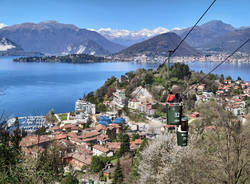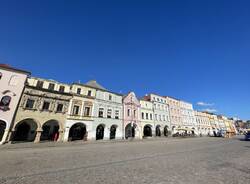Artificial Intelligence will trigger the talent war
Three speakers from China, Silicon Valley and Europe, dealt with the AI economic impact in a webinar arranged by Univa. These are different patterns which offer economic and social development opportunities that are not without risks
Every time we talk about artificial intelligence, we should understand which model we are talking about and if there is an agreement on this definition. Some believe it is suitable to talk about an intelligence related to technology, and more generally to computers, because having a great computing capacity, with unimaginable speed for the human brain, does not mean being intelligent.
Reducing the topic to a joke, we could say that computers cannot ask questions or, rather, that artificial intelligence is merely functional, far from the search for meaning that distinguish humans themselves, where intuition, emotion, feeling and empathy are determined in the creation of an intelligent and creative way of thinking.
The webinar called “Artificial Intelligence: challenges and opportunities,” organised by Univa and part of the side events of the World Manufacturing Forum, opened a series of interesting scenarios related to this topic. Marco De Battista, economic areas coordinator of Univa, and Marco Astuti, scientific coordinator of TechMission, engaged three researchers that work in the areas that are challenging themselves with this topic: China, USA and Europe.
The importance to define the perimeter of the artificial intelligence was highlighted by Giuseppe Linati, director of Digital Innovation Hub of Lombardy, who in his presentation reminded that the Ten Key-Recommendations of the World Manufacturing Foundation aim to address a successful and at the same time ethical and reliable implementation of artificial intelligence in the industrial production. An unpredictable goal, especially during this phase, in which opinions fluctuate between exaggerated enthusiasm and the doom and gloom.
GREATER BAY AREA: THE HEART OF CHINESE TECHNOLOGICAL DEVELOPMENT
Denis Bastieri’s gaze, professor of physics at the University of Padua and special advisor for Guangdong, is projected along the Greater Bay Area, now identified as the Chinese Silicon Valley, which is a candidate to become the heart of global technological innovation in the next decade. The giants of technology, including Huawei, and the major developers of digital platforms have set up their laboratories in that area. “To better understand the future, we need to understand China in its entirety,” began Bastieri. “There are some numbers that have an impact on the policy of using artificial intelligence. Let’s think about the population, over a billion people; about the market, five times than the whole European one, and about its total value that allows both its maintenance and expansion.”
Almost every Chinese person uses devices with artificial intelligence to personalize the various experiences of life, from a simple photograph, to suggestions for purchases and for choosing a restaurant. In China there is a massive use of artificial intelligence, that is spread at all levels. “The reason for this diffusion,” continued Bastieri, “depends on the fact that in China there is a centralized management of data that allows a better customer profiling. In our Country it would be impossible for privacy reasons.”
THE GREAT WALL HAS THE FOUNDATIONS IN THE LONG TERM
China has a strategic vision and the Great Wall, according to the physics professor at the University of Padua, is proof of this. That project has gone far beyond life expectancy of the individual citizen because the Chinese have the ability to create very long term projects. “The other characteristic of China is time derivatives that always have the right sign,” pointed out Bastieri. GDP is growing and the number of poor people is decreasing, the quality of technology improves year by year as the investments in research increase.”
According to Nature, China has become the largest producer of scientific articles and is at the forefront of publishing on the topics of genomics and biotechnology. All of this has a remarkable impact on the development of artificial intelligence.
Therefore in China there are two kinds of AI: the domestic one, really well regarded by Chinese people because it helps them with everything, and the industrial one. “The latter needs four components without which the transition to Industry 4.0 would be impossible” declared the professor, “which are: the IoT, the big data, the implementation of 5G and of course AI. China has them all”.
THE ARTIFICIAL INTELLIGENCE IN SILICON VALLEY
The AI model in Silicon Valley is deeply different from the Chinese one because it consists of transferring technology from the research facilities to the enterprises, the venture capital is its financial fuel and building a community is its social goal.
Luigi Congedo is an entrepreneur who has been living and working in the Bay Area for 8 years and is the title holder of BootstrapLabs, a venture capital company. According to his view, AI is the new way to digitalise the world and this is why everyone is talking about it, but in 10 years no one will talk about it. “It will become the standard for companies and what happened to big data, which nowadays everyone uses without mentioning it, will happen to AI too,” said Congedo. “The world is shifting from the automatisation to the creation of autonomous systems that can make decisions, can learn and better themselves. AI nowadays is strategic because it allows this transition”.
BootstrapLabs is searching for companies of any size to test and develop new technologies. “The venture capital in the USA invests approximately 150 billion dollars per year, the 15% of which is dedicated to AI,” explained the entrepreneur, “and the more scalable the AI is, the bigger the market it refers to.
From 1950 until the beginning of the 2000s, investments were made in research, especially in hardware and software, which paved the way for the development of artificial intelligence. Covid itself has been the driving force behind further investment by focusing it on health care, biomedical and logistics. However, the strongest impact will be on human resources. “In order not to be slaves to Microsoft, Google and the other technological giants,” concluded Congedo, “we need to bring more artificial intelligence into companies and we need to do it quickly because the war of talent will be unleashed.” The real scarce resource of this competition.
IN EUROPE THE CHALLENGE IS ETHICS
In a rapidly changing market, companies as well as their products will have to use artificial intelligence to compete and be relevant in the market. Massimo Craglia, Director General of the European Commission‘s Research Centre, also agreed with this first conclusion, but he claimed the originality of the European model in creating a regulatory framework for anyone coming to the Old Continent to do business with new technologies. “The ethical framework is different with us,” specified Craglia. “While in China the state owns the data and that’s why they are the leaders in facial recognition, in the US the owners of Google and Amazon use the data we give away on their platforms.”
If 80% of the data on which artificial intelligence is trained today are 80% personal and 20% industrial, with IoT and 5G these percentages are destined to reverse. Heavy investment will therefore be needed in training and research, particularly in digital and ecological, which are the cornerstones of the new Commission. “There is no point in regulating everything,” said the Director of the European Research Centre, “The correct approach is to identify areas of application and within those to identify the applications that have a higher risk than the others.”
Artificial and digital intelligence offer many opportunities for development to the economy and the society in general but require a lot of attention. “We must be vigilant about possible threats to our democratic values and social fabric,” added Craglia. “The future is not written, it is up to us to write it all together or otherwise someone else will write it.”
Translated by Chiara Brovelli, Edoardo Graziani, Andrea Rota and Michela Villa
Reviewed by Prof. Robert Clarke
La community di VareseNews
Loro ne fanno già parte
Ultimi commenti
YORK su Dopo la “estate del dito medio”, a Gallarate le opposizioni promettono: “Meno palazzo e più strade”
giuanipetrotta su Mostre, sfilate d'auto e un totem per l'ingegner Puricelli, così si celebra la "nostra Autolaghi"
Felice su Tutto ma proprio tutto sui cani nel Varesotto: le razze più diffuse comune per comune
GrandeFratello su Che fare a Varese e nel Varesotto nel weekend del 13, 14, 15 settembre
Alessandro Brachetti su Che fare a Varese e nel Varesotto nel weekend del 13, 14, 15 settembre
Giulio Moroni su Il grande gesto di Filippo Rovelli: si ritira dal campionato per lasciare il titolo a Luca Salvadori














Accedi o registrati per commentare questo articolo.
L'email è richiesta ma non verrà mostrata ai visitatori. Il contenuto di questo commento esprime il pensiero dell'autore e non rappresenta la linea editoriale di VareseNews.it, che rimane autonoma e indipendente. I messaggi inclusi nei commenti non sono testi giornalistici, ma post inviati dai singoli lettori che possono essere automaticamente pubblicati senza filtro preventivo. I commenti che includano uno o più link a siti esterni verranno rimossi in automatico dal sistema.